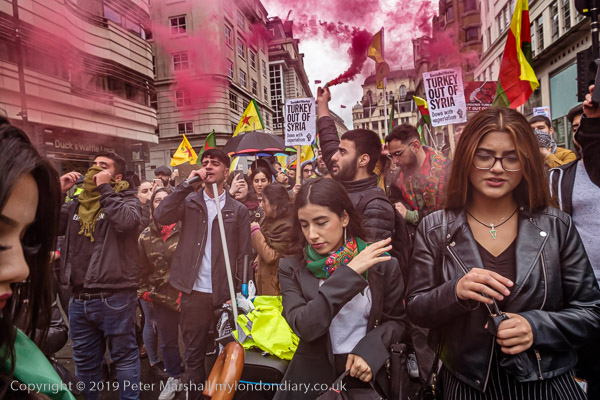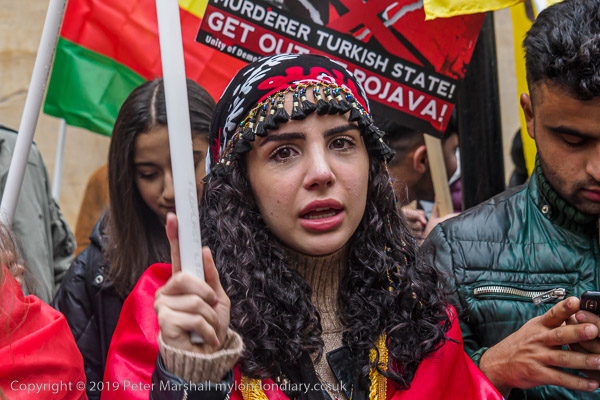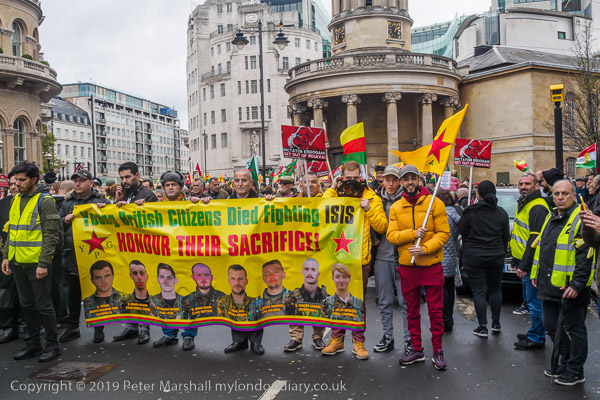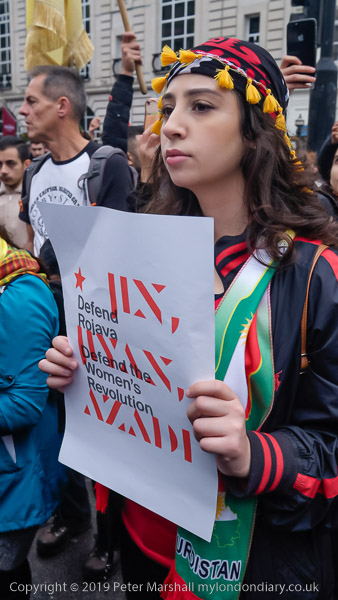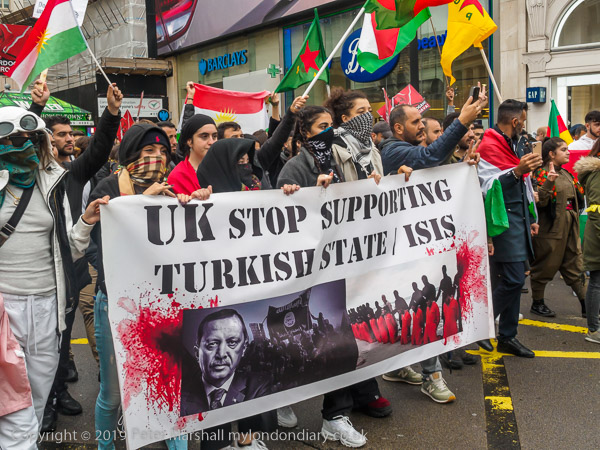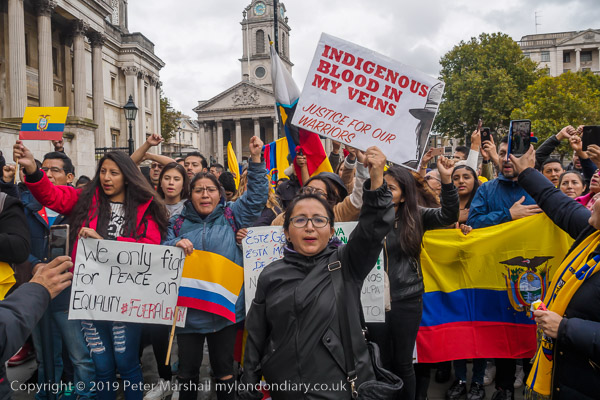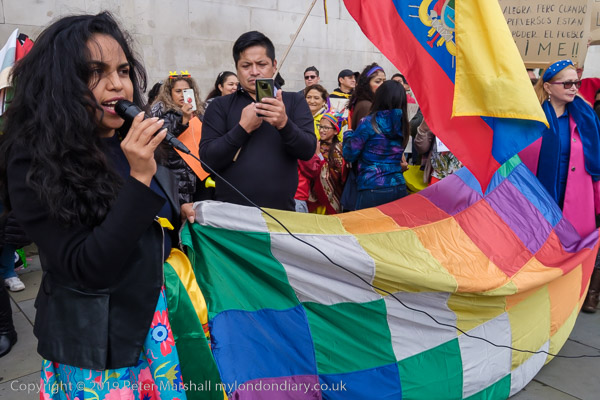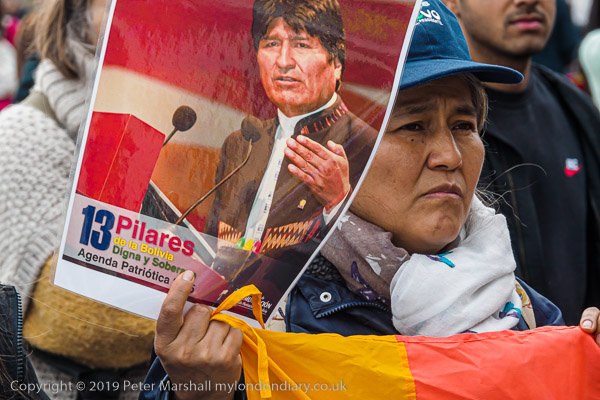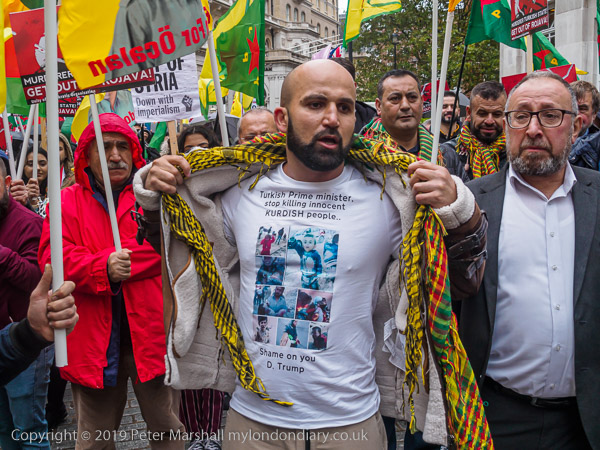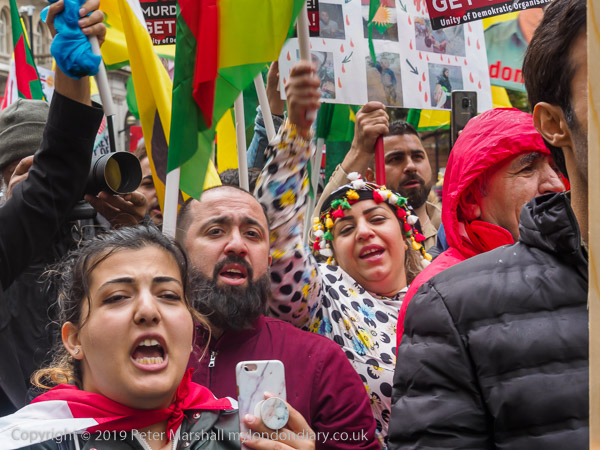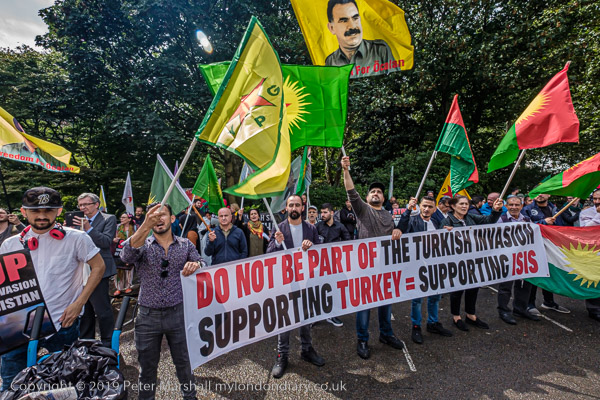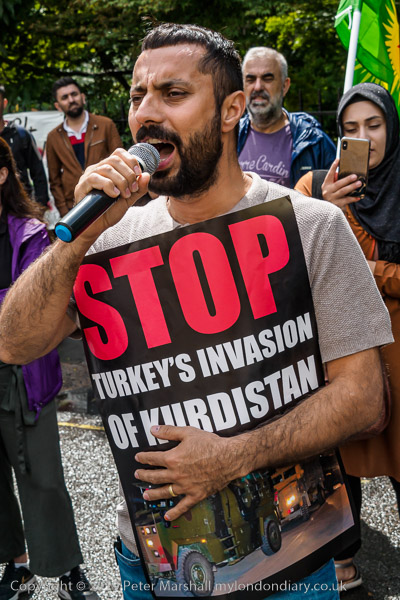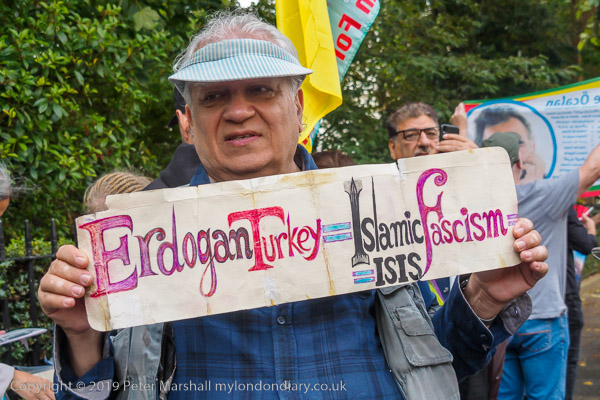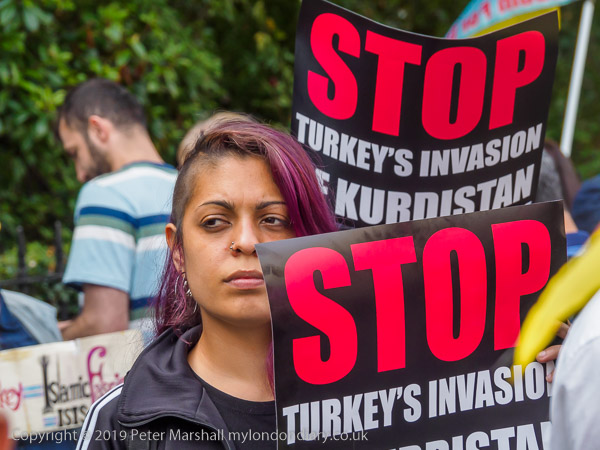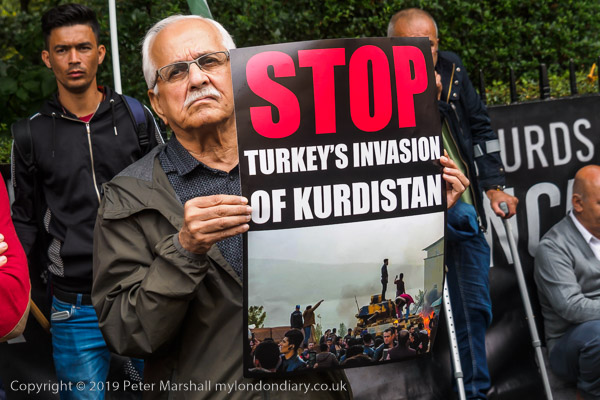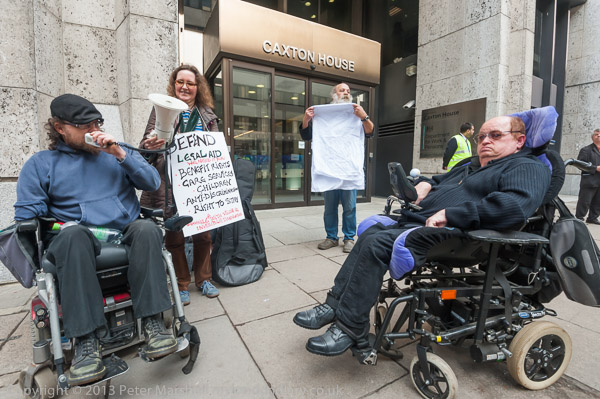
The idea of a day – or rather a morning – for largely harmless pranks to be played on others on April 1st seems to have been fairly widespread around many countries, but the seems to be no real explanation of its origin, but it seems to date back as least into the middle ages. The choice of date is suggested by some to have marked the end of the week of celebrations for the New Year, which was traditionally celebrated across Europe on March 25 until the sixteenth century.
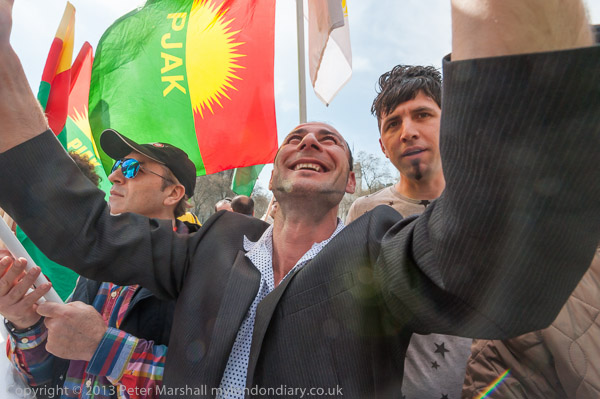
There have been some celebrated hoaxes over the years – and those of us who were around in 1957 still remember the spaghetti harvest on the BBC with its narration by Richard Dimbleby, which fooled much of the nation and amused the rest of us. But so many of today’s news stories and government pronouncements throughout the year now seem so bizarre and unbelievable that I now am disappointed when no-one comes on afterwards to shout ‘April Fool!’
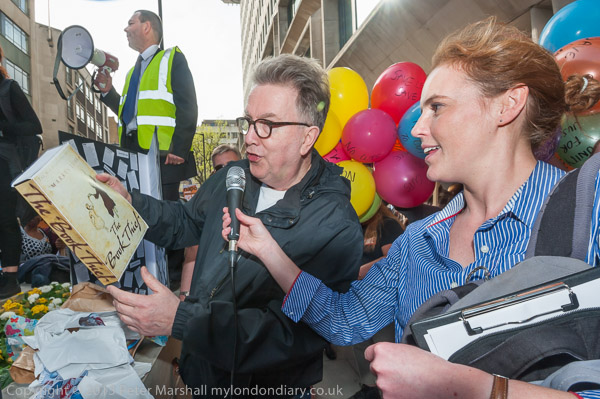
On several occasions in recent years I’ve found myself covering protests outside our Atomic Weapons factory at Aldermaston on April 1st and it’s long seemed to me that our government’s policy on nuclear deterrence is at best a complete hoax – but so far no government has stood up to admit this.
But I wrote about Aldermaston a few days ago, so today I’ll look elsewhere and to April 1st 2014, where I photographed three events in central London, one of which was by probation officers, naming then Justice Minister Chris Grayling whose birthday it was an ‘April Fool’, a judgement adequately confirmed by the failure of his reforms of probation and legal aid, and by his performance in later Government Ministries. Who can forget his no-deal Brexit ferry fiasco which resulted in us taxpayers forking out an extra £50 million on termination bonuses including to the firm with no ferries? ‘Failing Grayling’ is a truly well earned epithet.
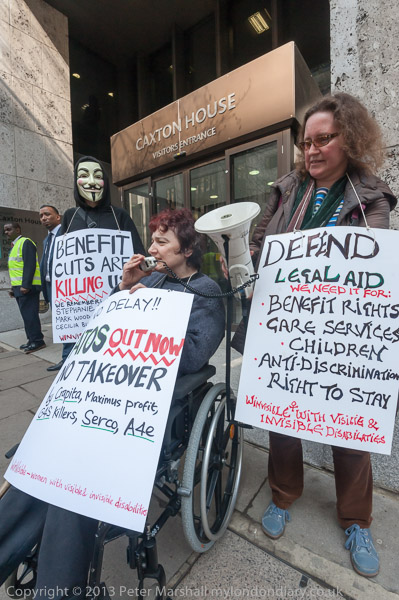
But the first event on that day was a picket by disablement activists at the Department of Work and Pensions HQ in Westminster, then run by Iain Duncan Smith, another Tory with a rather too consistent record of failure. Among the groups protesting were the Mental Health Resistance Network who successfully took the DWP to court over the discrimination against people with mental health conditions built in to the Work Capability Assessment (WCA). The DWP lost their appeal against the judgement but had defied the court in failing to address the issue.
Along with the MHRN were campaigners from DPAC and Winvisible and the picket was one of a number around the country demanding that assessments of work capability and personal independence payments be carried out by local GPs rather than the discredited tests by IT companies such as ATOS, which are inadequate by design and deliberately administered to disadvantage claimants, with trick questions and falsification of responses to meet targets set by the companies for the largely unsuitably qualified staff who administer them.
From the DWP in Caxton St it was a short walk to Parliament Square, where Kurds and Alevi were protesting against the attacks on the Kurdish areas in Northern Syria by forces supported by Turkey.
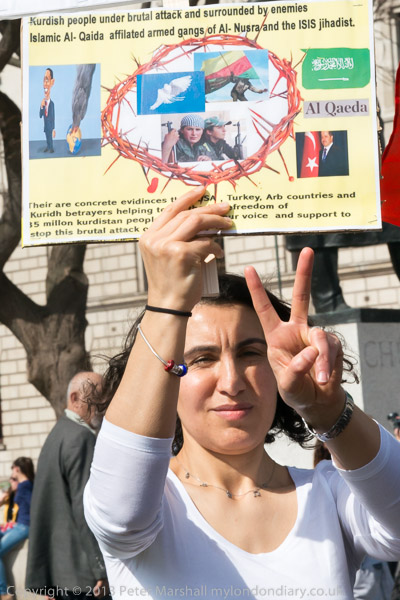
Kurds want justice and autonomy for northern Syria, where the area known as Rojava has a constitution that supports the rights of women and of all its population groups based on widespread community involvement. Many at the protest had flags for the PJAK (Party of Free Life of Kurdistan) which, like the Kurdistan Workers Party (PKK) calls for the release of Kurdish leader Abdullah Öcalan, held in a Turkish jail since 1999. The PKK was made a proscribed organisation in the UK in 2001 probably at the request of the Turkey, one of our NATO allies, who have a long record of discrimination and attempts to eliminate Kurdish culture and invaded and occupied Kurdish areas of Syria in 2016, implementing a policy of ethnic cleansing of the Kurds.
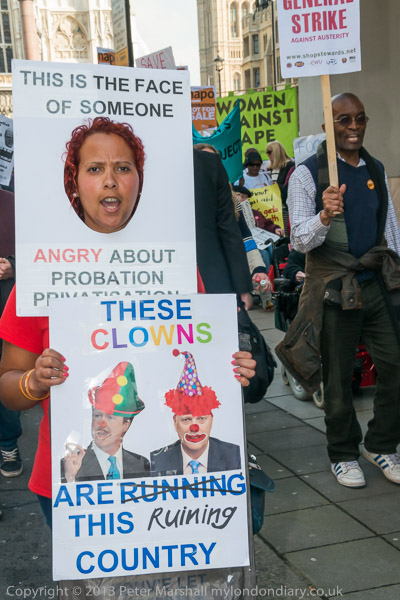
The largest of the protests on 1st April 2014 was by probation officers and lawyers from the London Criminal Courts Solicitors Association and other supporters of the Justice Alliance against the moves to privatise probation and cut legal aid.
Among the speakers at the event were two shadow ministers of justice and other MPs including Jeremy Corbyn, as well as Green Party Leader Natalie Bennett, trade unionists, and solicitors as well as several probabtion officers.
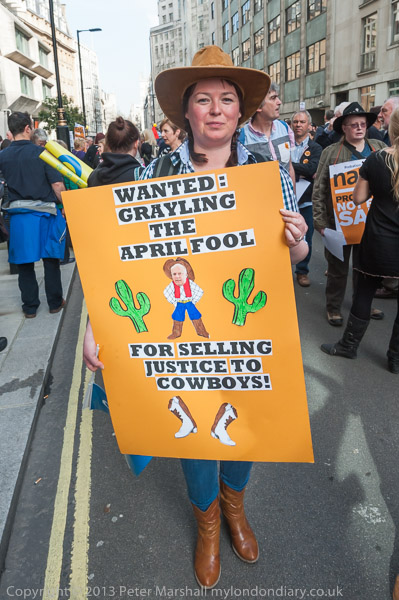
Following the rally in Parliament Square, the campaigners marched the short distance to the Ministry of Justice, where Tom Robinson led the singing of “the alternative ‘Happy Birthday’ and unwrapped a couple of presents for InJustice Minister Chris Grayling, a packet of Skittles (as bought by Travon Martin) and a copy of ‘The Book Thief’. Grayling had just announced that he was to stop books being sent to prisoners in UK jails.” A small group then delivered a birthday cake with a tombstone with the message ‘RIP Justice’ to the ministry.
More at:
Probation Officers Strike for Justice
Kurds protest at Rojava attacks
DWP & Atos Work Assessments
